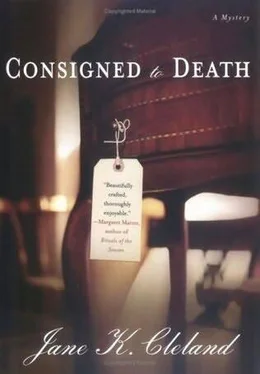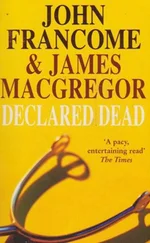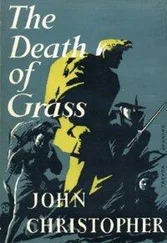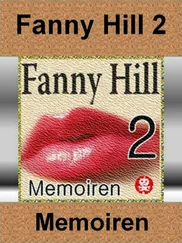“Chief Alverez called as well, but he wasn’t available when I tried to reach him back. By any chance… do you know if he has news?” she asked.
My throat constricted and my heart began to race. I swallowed twice, panicked, uncertain what to say. Max’s standing instructions came to me. Tell the truth and give short answers. And the truth was that I didn’t know anything. Speculation wasn’t fact.
“No, I don’t know anything.” I gripped the phone, hoping she wouldn’t ask additional questions. Poor Mrs. Cabot.
“He’s very good about staying in touch,” she remarked. “I’ll try him again when we’re done talking.”
“How are you holding up?” I asked.
There was a long pause. “All right. This is a difficult time.”
“Yes,” I agreed. I didn’t know what to say. I wanted her to know how much I’d liked her father, and that he’d been laughing and seeming to enjoy life in the days before his death. I determined to write her a note. The sympathy cards people had sent me had provided great comfort, more so than spoken words. When they’d talked to me, I’d had to respond, to hold up my end of the conversation, and during those first weeks, that had proven impossible. Reading meaningful recollections, though, had consoled me.
“I’m so sorry, Mrs. Cabot,” I said, finally.
After a pause, she said, “Thank you.” She cleared her throat. “Yes, well… you said in your message that you found the two paintings?” she asked.
“Yes. They were hidden here in the house, quite cleverly.”
“Where are they now?”
I swallowed. “The police have them.”
“For safekeeping?”
“Well, not exactly,” I said, hating that I had to be the one to tell her.
“What do you mean?”
“It seems that there’s no clear proof of ownership, I’m afraid. In fact, I have to tell you that I have reason to believe they’re stolen.”
“I see,” she said in a tone so low I could barely hear her. She cleared her throat and I could picture her troubled eyes. “I thought as much.”
“I’m sorry to be the bearer of bad news.”
“No, no, don’t be. I’ve been troubled by the thought for more than forty years. Certainty is always better than speculation. From whom were they stolen?”
I wondered if her suspicions about the paintings had led to the argument with her parents forty years ago, but I didn’t want to ask. Instead of trying to find out what might have happened when she was a girl, I answered her question directly. “My research suggests that they were taken from three different Jewish families before or during World War Two. Probably by the Nazis.”
I heard her inhale. “How awful.”
“Yes. They were all sold, apparently, by a man named Arnie Zeck.”
“Arnie Zeck. He was a friend of my parents. They knew him in Europe. I’ve seen photos.”
“Yes, there’s one mixed in with a bunch of others in a drawer of the tallboy in the sewing room.”
“I never knew…” she started, her voice trailing off.
“I’m sorry.”
“Don’t be. I should have investigated those paintings’ histories myself. Instead I kept quiet. More shame on me. Robert Louis Stevenson wrote, ‘The cruelest lies are often told in silence.’ I’ve kept many secrets in my life out of misplaced loyalty.” She laughed derisively.
I didn’t know what to say. Mrs. Cabot continued speaking before I had to decide how to respond. “No more,” she said. “I decided not to enable my daughter in her drug abuse either.”
“What do you mean?”
“I arranged an intervention last night.” Her voice cracked with emotion, but I also heard pride of accomplishment. It was a long moment before she continued. “I convinced Andi to drive down with me yesterday. When we got home, I surprised her with the intervention.”
My mouth fell open. I was astonished. More than astonished, I was shocked.
I’d persuaded myself that Andi was guilty of murder-of killing her own grandfather. To learn otherwise was staggering, and I had trouble focusing on the conversation with Mrs. Cabot. Alverez’s message was clear-he’d referred to the suspect as “her.” If it wasn’t Andi he had in custody, who was it? I was speechless, yet I needed to react. What had Mrs. Cabot said? An intervention? She’d arranged an intervention? I shut my eyes, leaned against the window frame, and forced myself to concentrate. With my mind still reeling, I asked, “What was it like?”
“It was extremely emotional. The professionals from the rehabilitation facility coordinated everything. We invited several of her friends from New York, and we all told her the truth.”
“What was her reaction?” I asked, unable to imagine anything less than a calamitous explosion.
“She was upset,” Mrs. Cabot said, in what I assumed was yet another example of understatement.
“What happened?”
“She decided to try and get over her addiction.” Her voice cracked again. “You know, perhaps, that the goal of an intervention is that the addict immediately admits herself to the program. Thank God, she agreed.” I could sense the fear behind her words, and my heart went out to her.
“You must be so relieved,” I said.
“I am.” She stopped, her wrenching emotion palpable. She cleared her throat and when she spoke again, it was in the calm, pleasant voice I’d come to expect. “It’s only the first step, of course, in what will be, no doubt, a very difficult process. But at least it’s a step in the right direction.”
I shook my head. Having seen Andi in action, I was a non-believer, yet I needed to say something positive. I gazed out the window toward the ocean. Under the cement-colored sky, the ocean looked bleak, seaweed dark, a green deeper than bottle green, and endless.
Nothing positive came to mind. I wondered whether Andi had any sense of the anguish her actions caused others. Finally, I said, “It must have been very hard for you.”
She paused. “Yes, well, I suppose so. But I am confident that I won’t be in this position again. If nothing else, my recent liberation from the conspiracy of silence precludes it.”
We agreed to talk in a day or two about the appraisal.
Hanging up the phone, I stayed at the window for a long moment, watching the forbidding-looking ocean, trying to make sense of what I’d learned.
Since last evening, Andi was in rehab somewhere in the Boston area. I shook my head. If she was in a secure location, who then, did Alverez have in custody? I felt the icy chill of uncertainty wash over me again.
Ifelt jump-out-of-my-skin on edge. Nothing made sense, and I began considering a desperate move to get more information-calling Wes. I was telling myself what a stupid idea that was when Max reached me on my cell phone.
“Cathy from the Rocky Point police just called to ask us to come on down and meet with Alverez and Murphy, the ADA.”
“Wow. When?”
“Now.”
“What do they want, do you think?”
“To review evidence, I’m guessing.”
“Do we go?”
“Yes.”
“Okay, then.”
“This probably means they’ve made an arrest,” he said.
“Who do you think it might be?”
“I don’t know.”
“It isn’t Andi,” I said, and filled him in.
“Good luck to her in getting off drugs,” Max said.
“Yeah. It’s so sad. About this arrest… what do you think the charge might be?”
“No idea. We’ll know soon enough, I guess.”
As I hurried down two flights of stairs, I was flooded with relief that the waiting was over.
I called my office en route, but got voice mail. I was surprised and glanced at the dashboard clock. Ten. I was puzzled. It was unlike Sasha to be late, especially since she’d know that Fred would be waiting for her.
Читать дальше












